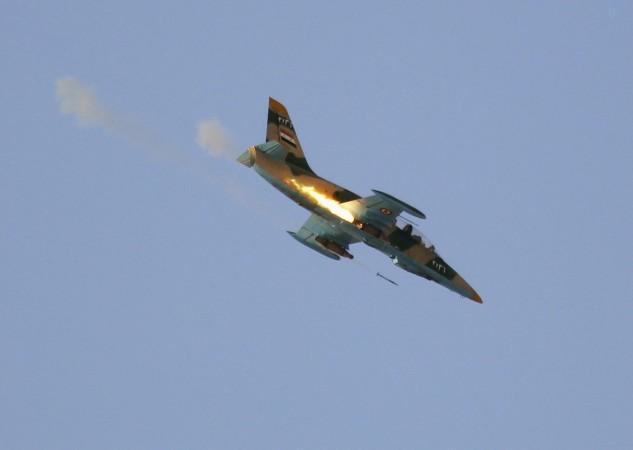
Iran has finally confirmed that the country's military conducted air strikes against Islamic State (ISIS) militant group in Iraq, days after it denied the reports.
A senior Iranian official said on Friday that the action was carried out at the request of Baghdad government, but insisted that the attacks against the jihadist group was not in coordination with the United States.
The country's deputy foreign minister, Ebrahim Rahimpour added that the action amounted to nothing more than the "defence of the interests of our friends in Iraq" including the Baghdad government and the Kurdish autonomous region in the north of the country, both fighting the ISIS.
"In this matter, we did not have any coordination with the Americans. We have coordinated only with the Iraqi government," Rahimpour told the Guardian in an interview. "In general, every military operation to help the Iraqi government is according to their requests."
Iranian officials had initially denied carrying out air strikes inside Iraq and simply pretended that they are not befriending the United States. A video aired by Al Jazeera channel earlier this week showed vintage US Phantom warplanes – often used by the Iranian air force – carrying out air raids in Diyala province, near Iranian border in late November.
The Pentagon later confirmed that the Iranian aircraft had been spotted, stressing that there had been no coordination with the US-allied forces, which is currently conducting massive air-strikes in northern Iraq and Syria against the deadly Sunni hardliner organisation.
"We will not allow conditions in Iraq to descend to the level of Syria, which has been created by foreign players. And certainly our assistance [to Iraq] is stronger than our assistance to Syria, because they are nearer to us," Rahimpour further told the British publication.
The new American ambassador in Baghdad, Stuart Jones, has said that Iran played a good role in the fight against ISIS as a neighbour and friend to Iraq, but stressed that the US should leave it for the Iraqi government to make sure that US and Iran do not clash in their target or duplicate each other.
"Let's face it," Jones told the Associated Press. "Iran is an important neighbour to Iraq. There has to be cooperation between Iran and Iraq. The Iranians are talking to the Iraqi security forces and we're talking to Iraqi security forces ... We're relying on them to do the deconfliction."

















